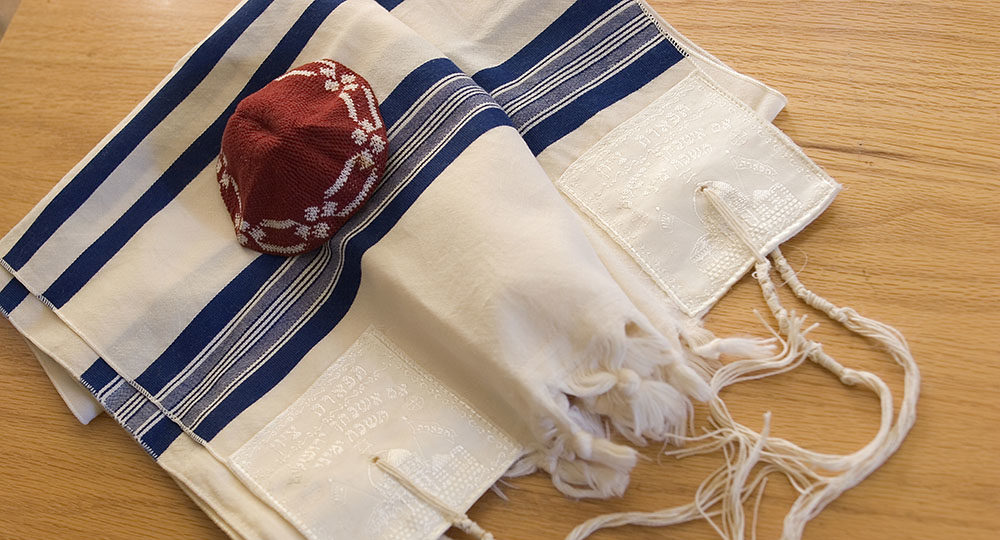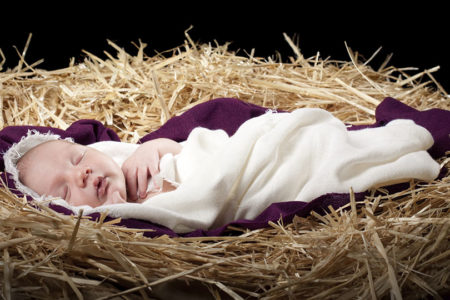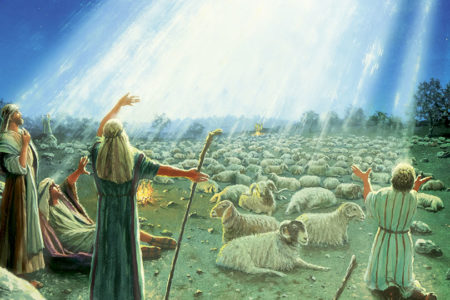The Love of God is Greater Far
In 1096 in the city of Worms, Germany, Rabbi Meir Ben Isaac Nehorai composed a lengthy poem, Hadamut, extolling God. Tragically, that same year the Crusaders came to the city and murdered all the Jewish people, and probably the rabbi.
In modern Judaism, the poem is viewed as a beloved song, which some synagogues joyfully chant during the Feast of Shavuot (Weeks) in the spring.
The poem’s first 14 verses establish the greatness of God, which exceeds all ability to describe. It also praises God for His Law, His eternal love, and His concern for His people.
In 1917 a Christian minister named Frederick Lehman (1868–1953) came upon a portion of a revised form of the ancient Jewish poem and used it to add a stanza to a song he was writing. Later, whether Pastor Lehman was aware of it or not, he adapted some of the rabbi’s sentiments about God’s love when he composed more lyrics to his hymn, which he titled “The Love of God.”
Today “The Love of God” is a much-loved classic in Christian hymnology. What better time of year to ponder God’s great love than Christmas? Here are the first verse and refrain:
The love of God is greater far
Than tongue or pen can ever tell;
It goes beyond the highest star,
And reaches to the lowest hell;
The guilty pair, bowed down with care,
God gave His Son to win;
His erring child He reconciled,
And pardoned from his sin.
Refrain
O love of God, how rich and pure!
How measureless and strong!
It shall forevermore endure
The saints’ and angels’ song.








This song has great heart, seems touched or at least inspired by the Almighty. The third verse is some of the most beautiful prose put to music ever.
words, words, words, empty..no heart, no fire, nor zeal…the ONLY proper return…is “the living sacrifice”, who “love not their own lives unto death.”
Actually only one stanza of the song was written by Meir Ben Isaac Nehorai. It comes from a poem he’d written in 1096. At some point after FM Lehman’s song became famous in the Christian Church a curious parishioner went to Rabbi Hurst (Then the Rabbi of Britain) to ask about the stanza that puzzled him. That Stanza is this:
“Could we with ink the ocean fill, and were the skies of parchment made; Were every stalk on earth a quill, And every man a scribe by trade: To write the love of God above Would drain the ocean dry, Nor could the scroll contain the whole Though stretched from sky to sky.”
The Rabbi listened carefully to the words and identified it. He had included it in his book “On Jewish Thought” which can be found today on Amazon. My notes say it’s on page 213. You will find that this poem was written in A.D. 1050 by a German Jewish poet, Meir Ben Isaac Nehorai. It is used in the synagogue for Shavuot (Feast of Weeks or Pentecost)
FM Lehman put the music and lyrics together into what we know today as “The Love Of God”
Susan Murdoch, I was reading your post here with great interest today. I had been praying this morning after I woke up and the Lord put that song “The Love of God” on my heart. I was looking up today about its origins and find the part about Meir Ben Isaac Nehorai totally fascinating. Thank you for posting this information! I went looking to see if I could find the book “On Jewish Thought” by Hurst on Amazon, but not having any success so far. Do you have any additional details on that book by any chance? (Thanks and God bless!)
I think I found the poem at https://www.sefaria.org/Akdamut_Milin.1.87?lang=bi
under the title Akdamut Milin.
When I google this song it is weird how many different stories regarding the writing of this song appears. One article says Lehman was a failed businessman who was working in Pasadena loading crates of oranges and lemons when he wrote the song. Another article says he was an evangelist, but none of them mention Meir Ben Isaac Nehorai. Curious as to which story to believe. Can you offer any additional info?